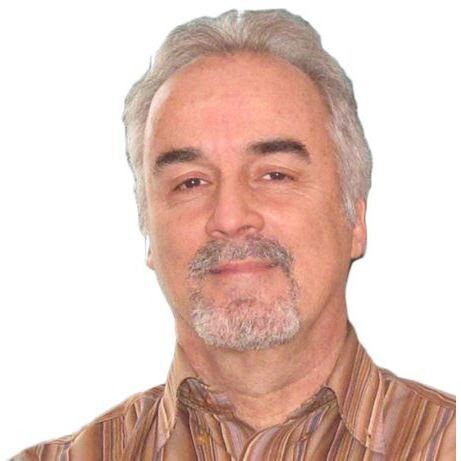Celebrating Quebec’s –and the globe’s– chief scientist
Author(s):
Paul Dufour

Disclaimer: The French version of this text has been auto-translated and has not been approved by the author.
During my 40 plus years in science policy, I have had the pleasure of working with many science advisors and ministers. They came from diverse backgrounds often with a mix of public communication and political skills. During this trajectory, it was a rewarding experience for me to learn about the craft and art of science advice in its many forms. Whether it was with the Carnegie Group of Science Advisors and Ministers to Heads of Governments or with G7-G8 science ministers’ meetings or working with Canada’s National Science Advisor as well as special advisor to several federal science ministers, or helping mentor the current Canadian Science Advisor’s Youth Council, the learning experience was always new and exciting.
Science advice is not a science–and let’s be clear- effective science advice is never really about policy-making. At the end of the day, it is about well-developed people skills, shaping ideas and communicating new ways of advancing knowledge for the benefit of citizens –truly, a veritable art. One of the privileges I have had over the past two decades has been to know and assist in small ways the work of Quebec’s chief scientist, Remi Quirion. It is a rare person indeed that can survive several political administrations over an almost 15 year stint as the top science advisor to different Quebec governments.
Dr Quirion has had an eclectic background starting with his medical research, training and education at the Universities of Sherbrooke and McGill and moving on to Ottawa to direct one of the key research institutes of the Canadian Institutes of Health Research and then appointed to Quebec as its first chief scientist in 2011 with legislation adopted by the Quebec National Assembly.
Of course, no one is trained to be a chief scientist. The job is essentially about learning by doing– but Remi has done it extremely well during his various mandates while running the Fonds de recheche du Quebec. He has been creative in using his small but effective staff and budget to affect change both in Quebec, but also through his global reach spreading the science advice and diplomacy gospel through various channels, including the International Network for Government Science Advice (INGSA) which he still chairs.
I have had the pleasure of assisting Remi with his work at INGSA and in helping codify–-if that is actually possible— the Canadian experience in science advice in a joint paper Remi Quirion, Arthur Carty, Paul Dufour & Ramia Jabr
Palgrave Communications, Vol. 2, 2016 along with other initiatives over the years. And Remi’s 2024 D. Allan Bromley Memorial lecture at UOttawa’s ISSP–Democracy and Science Diplomacy: A Key Role for Science Advisors -spelled out many of his various policy experiments, not to mention challenges in working with nine science ministers under four different Quebec administrations since 2011 (2024 Bromley Memorial Lecture: Dr. Rémi Quirion)
But it is his creativity and passion that is the hallmark of a successful chief scientist. He has instituted a student science policy committee that advises his office and the three Quebec granting councils he oversees (replicated in part by Canada’s current chief science advisor). Remi has also expanded the concept of science advisor to include municipalities with the appointment of this new position in several of Quebec’s city councils.
He has posted young researchers in consular offices abroad to spread the message of Quebec’s and Canada’s strong research place in the world and has written many op eds and opinion pieces on the subject, including a March editorial co-authored with his federal counterpart colleague Dr. Mona Nemer on the changing dynamics of the Canada-US science relationship.
He has worked tirelessly to ensure that the Quebec’s National Assembly is briefed periodically on emerging or hot political issues that require a science and technology input and has bridged the communication gaps that often exist with the media in all of its forms as well as many science outreach organizations to help improve the science culture with the informed and interested citizenry. As well, he is a strong proponent of French in science and has been active in strengthening the use of that language in research across the globe as well.
As part of Quebec’s three so-called amigos, Remi has linked science with technology and innovation and investment across the funding and decision-making spectrum. And of course, Dr Quirion’s influence in shaping Quebec’s overall research and innovation ecosystem is often examined by various other research policy bodies both here in Canada and elsewhere as a well-oiled functioning apparatus that can affect policy in a positive fashion..
It is no surprise then that Dr Quirion has received numerous awards and recognitions at many levels, including the special science policy certificate given to him by Jeff Crelinsten at the 2024 Research Money conference in honour of our great friend and UOttawa science and innovation policy scholar John de la Mothe. And in November 2025, Remi received the CSPC’s LifeTime Achievement in Science Policy award.
There is much left in Remi’s toolkit to help improve the state of science advice and diplomacy both here in Canada and Quebec but also around the globe. The 30 October 2025 Gala honouring Remi in Montreal with over 200 guests was a testament to his tremendous impact as a researcher, as well as a true ambassador for trust in sound knowledge in all of its forms, but it was also a key reminder of the humility, humour and professional integrity of Remi.
A new chief scientist will doubtless be appointed in the coming months, and a book recounting Remi’s career will be forthcoming as well … in the meantime, wishing Dr Quirion bon courage as he continues to strengthen science diplomacy here and around the globe.
More on the Author(s)
Paul Dufour
Institute for Science, Society and Policy, University of Ottawa
Senior Fellow

